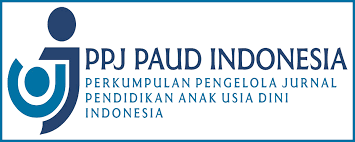MENDADAK E-LEARNING : STUDI KUALITATIF MAHASASISWA PERGURUAN TINGGI SELAMA MASA PANDEMI COVI-19
DOI:
https://doi.org/10.33474/thufuli.v3i2.13577Abstract
Abstract
Pandemi Covid 19 membawa gangguan besar pada dunia pendidikan, memberikan tantangan baru bagi dunia pendidikan, dan membuat banyak stake holders lembaga pendidikan menjadi stressl. Penelitian ini bertujuan untuk menganalisis persepsi mahasiswa terhadap peralihan pembelajaran off line ke pembelajaran online pada masa pandemi Covid 19. Penelitian ini dilakukan secara kualitatif melalui pelaksanaan wawancara prastruktur dengan melibatkan 35 mahasiswa yang tersebar di dua fakultas yang berbeda, enam jurusan yang berbeda, dan dipilih dari 245 mahasiswa. Wawancara dilakukan untuk mengumpulkan data dan untuk mendapatkan batasan persepsi dan pengalaman langsung dari mahasiswa yang menjadi salah satu bagian dari elemen utama masalah ini. Itu juga dilakukan berdasarkan pedoman yang dirancang oleh peneliti dan data yang dikumpulkan dianalisis dengan metode analisis isi dalam bentuk analisis isi deskriptif, analisis isi inferensial, analisis isi pssikgometrik, analisis isi prediktif. Temuan penelitian ini menunjukkan bahwa pembelajaran online selama pandemi Covid-19 memberikan kontribusi pengalaman positif dan pengalaman negatif kepada siswa baik dari segi unsur fisik, unsur psikologis, dan unsur kognitif. Temuan tersebut mengarah pada kesimpulan bahwa, dosen perlu melihat peluang, kelemahan, kekuatan, dan ancaman dari isu-isu yang bergeser ini untuk mendapatkan tindakan yang mungkin untuk pengembangan sistem pembelajaran online yang lebih baik.
Â
Â
Abstract
The Covid 19 pandemic brings significant distruption to education, carrying out new challenge for education, and making alot of educational institutions stake holders becoming stressfull. This study aimed at analyzing the college students perception on shifting off line learning to online learning during Covid 19 pandemic . This study was conducted qualitatively through the implemetation of pre-structure interview by involving 35 student who spread in two different kinds of faculties, six different majors, and selected from 245 college students. The Interview was conducted to gather the data and to gain boundaries of direct perception and experiences belong to college students who became one part of primary element to this issue. It also was conducted based on the guidelines designed by the researchers and the data gathered analyzed with content analysis method in term of descriptive content analysis, inferential content analysis, psychometric content analysis, predictive content analysis. The findings of this research showed that on-line learning during Covid-19 pandemic contributed both of positive experience and negative experience to the students in term of physical element, psychological element, and cognitive element. The finding lead to the conclusion that, the lectures need to pretend to the opportunities, weaknesses, strength, and threats of this shifting issues in order to obtain the possible action for better development of the on-line learning system.Â
            Â
References
Blended learning via distance in pre-registration nursing education: A scoping review. (2020). Nurse Education in Practice, 44 https://doi.org/10.1016/j.nepr.2020.102775.
David, Fred R & David, Forest R (2017) Strategic Management: A Competitive Advantage Approach Conept and Cases 16 th Edition. Pearson Education: United States Of America.
Dejene, W. (2020). Conceptions of teaching & learning and teaching approach preference: Their change through preservice teacher education program. CogentEducation, 7(1)http://dx.doi.org/10.1080/2331186X.2020.1833812
Dube, B. (2020). Rural online learning in the context of COVID 19 in south africa: Evoking an inclusive education approach. REMIE Multidisciplinary Journal ofEducationalResearch, 10(2),135-157. :http://dx.doi.org/10.447/remie.2020.5607
Gray, L., Thomas, N., & Lewis, L. (2010). Teachers’ use of educational technology in USpublic schools: 2009 (NCES 2010-040). Washington, DC: National Center for Education Statistics, Institute of Education Sciences, U.S. Department of Education.
https://pusdiklat.kemdikbud.go.id/surat-edaran-mendikbud-no-4-tahun-2020-tentang-pelaksanaan-kebijakan-pendidikan-dalam-masa-darurat-penyebaran-corona-virus-disease-covid-1-9/ pada 21 Juli 2021.pukul. 09.02 am
Hutchinson, T., & Waters, A. (1987). English for specific purposes: A learning-centred approach. Cambridge, England: Cambridge University Press.
Irawan, A. W., Dwisona, D., & Lestari, M. (2020). Psychological Impacts of Students on Online Learning During the Pandemic COVID-19. KONSELI: Jurnal Bimbingan dan Konseling (E-Journal), 7(1),53-60.
Izzeidin. A & B. Dair. RN (2021). Nursing Students And Faculty Members Perspective About Online Learning During Covid-19 Pandemic: A Qualitative Study, Teaching and Learning And Nursing Journal 13 (3) 1-7 https://doi.org/10.1016/j.teln.2021.02.008.
Kay, J., McRae, N., & Leoni, R. (2020). Two institutional responses to work-integrated learning in a time of COVID-19: Canada and australia. International Journal of Work - Integrated Learning, 21(5), 491-503. https://www-proquest
Kelly, M. (2020). Languages and the coronavirus crisis. European Journal of Language Policy, 12(2), 257-270.
Kramer. C (2001:23 ) Success in On-Line Learning. Thomson Learning. United States Of America. P. 23-24
Liu, P. (2016), “Technology integration in elementary classrooms: teaching practices of student teachersâ€, Australian Journal of Teacher Education, Vol 41, No. 3, pp 87–104.Retrieved from: https://statenews.com/article /2020/07/students-share-impact-of-onlineclasses-
Neuendorf K. (2017). The Content Analysis Guide Book 2 ed., Los Angeles, London, New Delhi, Singapore, Wasighton Dc, Melbourne: Sage Publication. P. 71-80
Syahputri, V, N & Parlindungan. F (2020) Online Learning drawbacks during the Covid-19 Pandemic: A pscychological Perspective, EnJourMe (English Journal of Merdeka): Culture, Language, and Teaching of English 5 (2) 109-116 https://doi.org/ 10.26905/enjourme.v5i2.5.
Thanyaphongphat, J. (2019). Effects of personalized learning with preferred digital media types on learning motivation. Kidmore End: Academic Conferences International Limited. http://dx.doi.10.34190/EEL.19.041
Thomson P. & Hall C. (2017) Place-Based Methods For Researching Schools. New York: Blooms Burry Publishing Plc.
Wiles, G. (2020, July 30). Students share impact of online classes on their mental health. The State News.on-their-mental health?ct=content_open&cv=cbox_latest.






